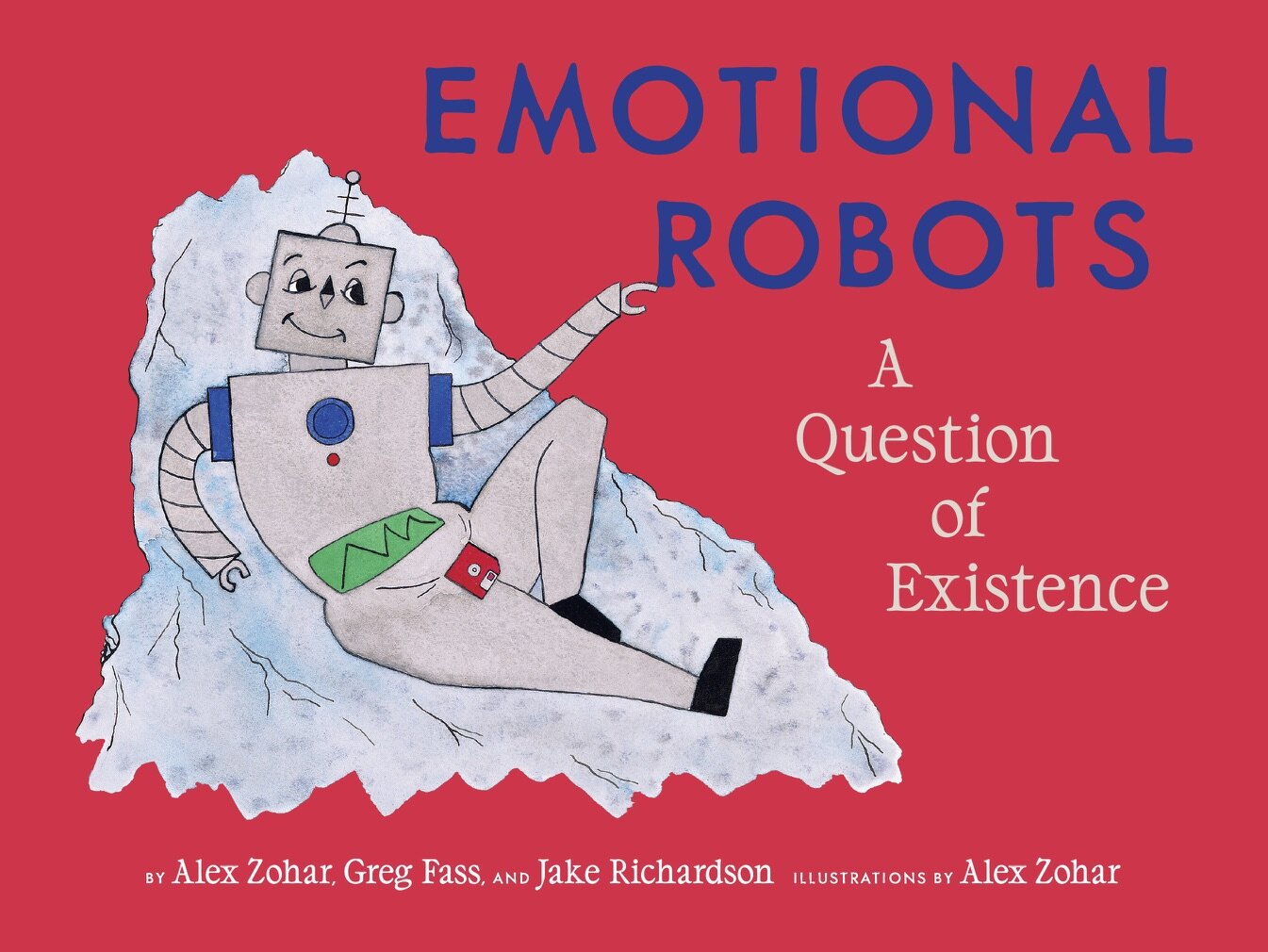
Humanity and technology. These days, it seems like the lines are blurred between the two. After reading graphic novella Emotional Robots by Alex Zohar, Greg Fass, and Jake Richardson, one would realize the parallels of humanity and technology are not only surprising, but equally comical. Following a poignant year like 2020, now more than ever, humans depend on technology. With nearly every industry reverting to some form of online capability, 2020 was a clear indication of just how dependent we as humans rely on technology to function.
In a wildly hilarious story of existence, Emotional Robots does an excellent job of juxtaposing humanity with technology and its ever-changing innovation. With just the right amount of irony, writers Zohar, Fass and Richardson create a strangely parallel world in which robots rule, and yet somehow, they too experience the same existential dilemmas, joys, and sorrows that the obsolete humans once felt. With its subtle humor and witty illustrations that are nuanced with dozens of cultural references, Emotional Robots poses existential questions, ripe for the current human condition all by way of a storybook. We recently sat down with the writers to discuss the inspiration for the book and how it came about.
Where did the inspiration of Emotional Robots come from?
Everyone has the infamous clutter drawer in their house, and in Greg’s, he had accumulated five old phones, three iPods, and some other useless tech gadgets. None of this stuff was that old, but all were worthless to him. Tech moves so fast, and we consume so much of it that the old versions become obsolete overnight. We could only imagine the feeling of rejection and worthlessness we’d feel if we were tossed aside like that. So, we asked ourselves the question: What if technology could experience emotions, just like humans? While the rapid pace of technology serves as the initial inspiration, as we developed the project, its scope broadened to encompass larger themes relevant to our time. Drawing on our experiences working in the tech world, we wanted to use humor to explore some of these themes and do it in a way that incorporates all of the influences and popular culture that we love.
Where did the concept for this dually unique and relatable format for the book come from and how did it evolve through the creative process?
We were initially inspired by books like “Go the Fuck to Sleep” by Adam Mansbach, and wanted to make something that was in that similar vein: visually stunning, easy to read, share, and talk about with friends—something that could live on your coffee table. As we developed the project it evolved into a graphic novel where both the illustrations and text helped construct the narrative.
One of the significant themes throughout the book is rooted in how the robots evolve, their lives and functions mirror those of humans’. What is the message you all are trying to convey with this theme?
We’re really not trying to push a particular set of morals on anyone with this book, it’s supposed to be fun and entertaining above all else. Overall, the book’s intent is to make people laugh, sharing in the humor of our existence and modern condition. On a deeper level, perhaps it can help us take a step back and widen the lens of our current place in history.
As Emotional Robots is nuanced with so many issues that the world is currently dealing with today, what are some big takeaways that you hope to leave readers with?
What’s wild is that we finished the book in 2018, and as time went on and 2020 came along, our book continued to show parallels to what we were seeing in the real world. We’re not pretending to know how to fix society, we’re just suggesting that people who society has left behind may have some valuable answers. We hope readers are left feeling a bit more empathy coming away from this book as we think compassion can go a long way.
